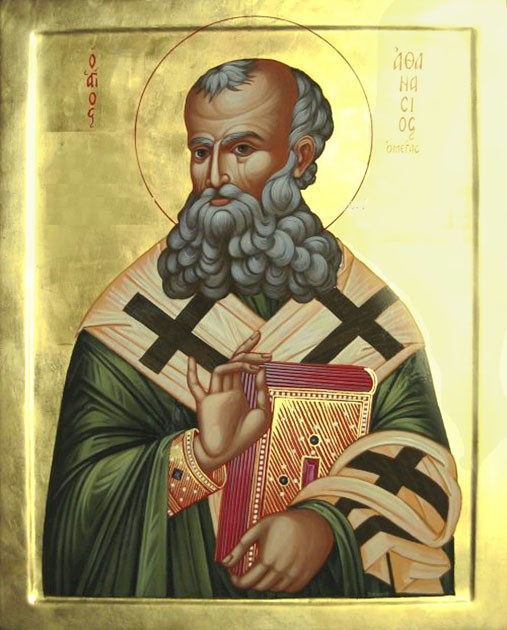Dysmas and Gestas
English > Characters > Biblical characters > Dysmas and Gestas
Context
In chapter 16 of The Master and Margarita, Yeshua Ha-Notsri is crucified together with Dysmas and Gestas. Gestas sings quietly «a hoarse, senseless song, something about grapes». His head, covered with a turban, occasionally sways, and then the flies rise sluggishly from his face and settle on it again. Dysmas suffers more than the other two, he claws the ends of the crossbar with his nails, keeps his head turned towards Yeshua's post. «Silence on the second post!». In the fifth hour of their suffering the threesome gets something to drink, and are then killed by the executionor with a spear.
Sources
In none of the four gospels which are part of what we know as the New Testament - the gospels of Matthew, Mark, Luke and John - we can find indications of the names of the two criminals who are crucified with Jesus. At the most, we speak of the Penitent Thief or the Good Thief (sic) and the Impenitent Thief. So, how did Bulgakov know them? The reason for this can be found in the fact that there are many more gospels than the four officially included in the New Testament by the Christian churches.
After all, there are dozens of texts from the first centuries of Christianity which pretend to be a gospel or which were considered as such by others. The problem of the Catholic Church was that they sometimes contradict each other.
In 367, Athanasius (293-373), the Bishop of Alexandria, decided to put things in order. He made a distinction between «God-inspired gospels» and so-called «apocryphal gospels» and, by doing so, he determined the Alexandrian Canon, a list of «God-inspired Bible books» corresponding to the Old Testament and the New Testament as we know it today. In 382, under Pope Damasus (305-384), this list was definitively approved as the Damasus List. And most of the apocryphal texts were forbidden from that time on.
However, by this decision the apocryphal gospels did not disappear. Today we still now the gospels written by Judas, Thomas, Nicodemus, Philippus, Bartholomew, Philip, Thaddeus and many more, even a gospel by Mary Magdalene. The latter became more widely known in 2003 by the novel Da Vinci Code from the American author Dan Brown.
One of the source texts on which Bulgakov based himself to give shape to the biblical passages of The Master and Margarita was the apocryphal Gospel of Nicodemus, also called the Acts of Pilate, since it concentrates on the agony of Jesus.
In that gospel, the two fellow convicts of Jesus of Nazareth are mentioned by name. In Book IX: 5, Nicodemus quotes the following words which Pilate said to Jesus: «Thy nation hath convicted thee as being a king: therefore have I decreed that thou shouldest first be scourged according to the law of the pious emperors, and thereafter hanged upon the cross in the garden wherein thou wast taken: and let Dysmas and Gestas the two malefactors be crucified with thee.»
The Gospel of Nicodemus is downloadable in our archives section
Good and evil
The name Dismas is possibly a derivative of the ancient Greek word δυσμή [dismi], which means descent or sunset, or in the figurative sense end of life or death. According to tradition, Dismas, who was crucified on the right-hand side of Jesus, was the Penitent Thief. He repented on the cross, received forgiveness and joined Jesus in heaven. In Luke 23: 42-43 we can read: «Then he said, 'Jesus, remember me when you come into your kingdom.' Jesus answered him, 'Truly I tell you, today you will be with me in paradise.'»
Hestas, on the other hand, continued to blaspheme God. According to Luke 23:39, he even challenged Jesus: «Aren’t you the Messiah? Save yourself and us!». He therefore ended up in hell.
The typical Russian orthodox cross is reminiscent of this discord. It has a second, oblique crossbar at the bottom. It represents the two criminals who hung left and right of Jesus Christ at the crucifixion. On the left the murderer who continued to mock Jesus until the end and got lost, and on the right hand the robber who asked for forgiveness and could save his soul.
Share this page |


